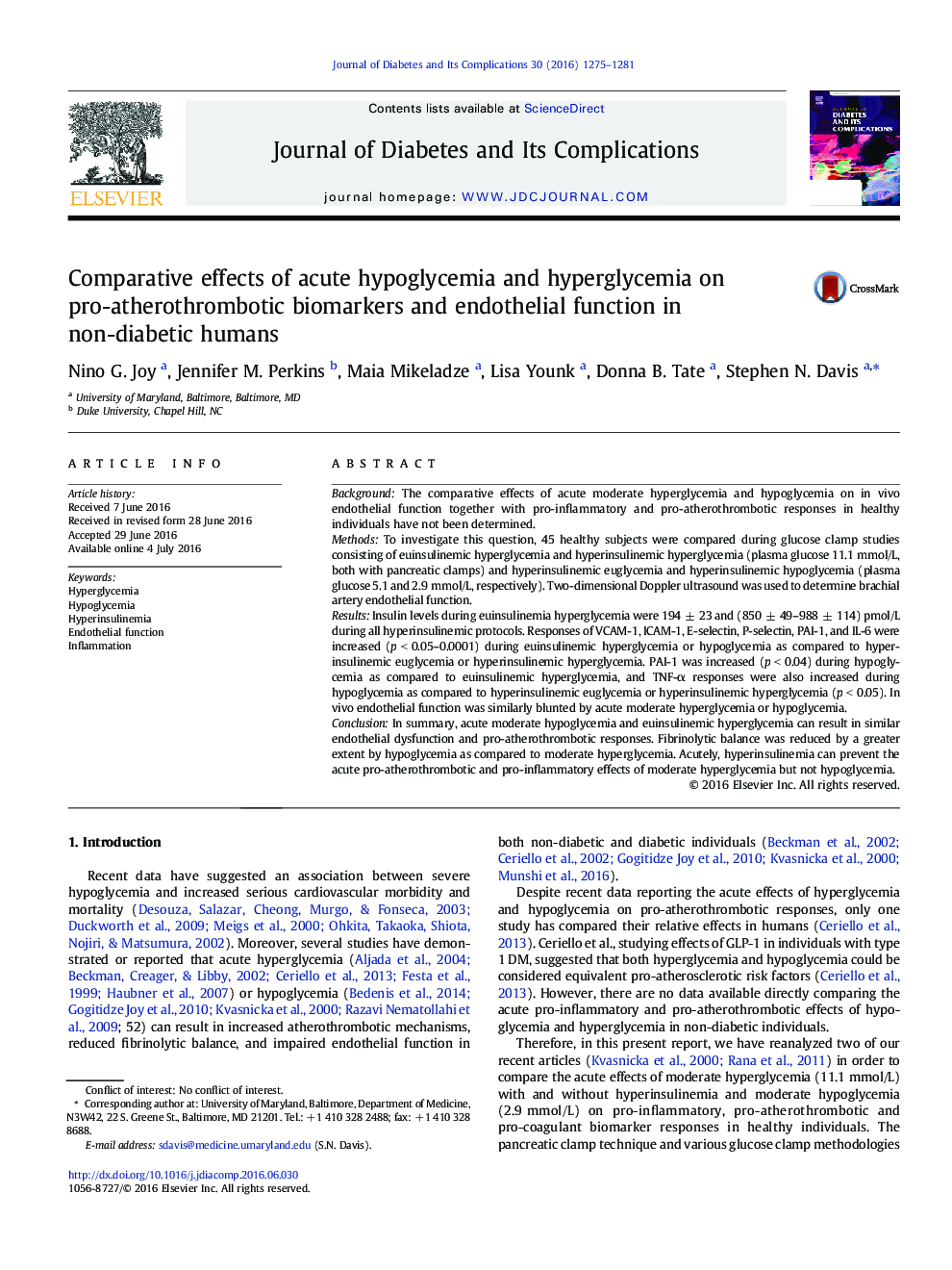| Article ID | Journal | Published Year | Pages | File Type |
|---|---|---|---|---|
| 5588108 | Journal of Diabetes and its Complications | 2016 | 7 Pages |
BackgroundThe comparative effects of acute moderate hyperglycemia and hypoglycemia on in vivo endothelial function together with pro-inflammatory and pro-atherothrombotic responses in healthy individuals have not been determined.MethodsTo investigate this question, 45 healthy subjects were compared during glucose clamp studies consisting of euinsulinemic hyperglycemia and hyperinsulinemic hyperglycemia (plasma glucose 11.1 mmol/L, both with pancreatic clamps) and hyperinsulinemic euglycemia and hyperinsulinemic hypoglycemia (plasma glucose 5.1 and 2.9 mmol/L, respectively). Two-dimensional Doppler ultrasound was used to determine brachial artery endothelial function.ResultsInsulin levels during euinsulinemia hyperglycemia were 194 ± 23 and (850 ± 49-988 ± 114) pmol/L during all hyperinsulinemic protocols. Responses of VCAM-1, ICAM-1, E-selectin, P-selectin, PAI-1, and IL-6 were increased (p < 0.05-0.0001) during euinsulinemic hyperglycemia or hypoglycemia as compared to hyperinsulinemic euglycemia or hyperinsulinemic hyperglycemia. PAI-1 was increased (p < 0.04) during hypoglycemia as compared to euinsulinemic hyperglycemia, and TNF-α responses were also increased during hypoglycemia as compared to hyperinsulinemic euglycemia or hyperinsulinemic hyperglycemia (p < 0.05). In vivo endothelial function was similarly blunted by acute moderate hyperglycemia or hypoglycemia.ConclusionIn summary, acute moderate hypoglycemia and euinsulinemic hyperglycemia can result in similar endothelial dysfunction and pro-atherothrombotic responses. Fibrinolytic balance was reduced by a greater extent by hypoglycemia as compared to moderate hyperglycemia. Acutely, hyperinsulinemia can prevent the acute pro-atherothrombotic and pro-inflammatory effects of moderate hyperglycemia but not hypoglycemia.
